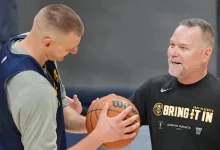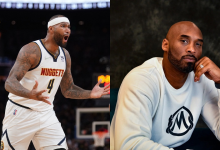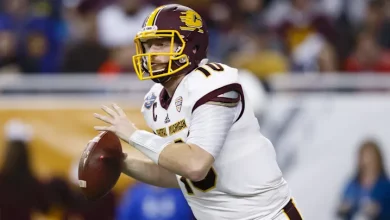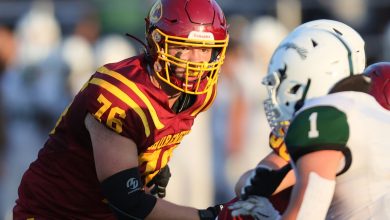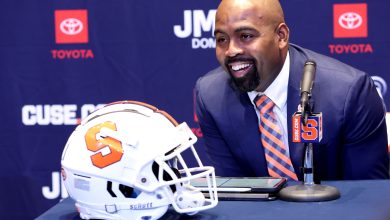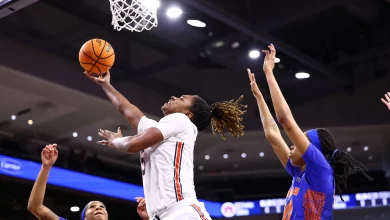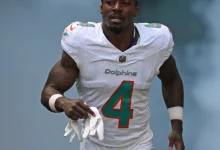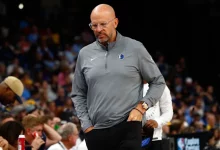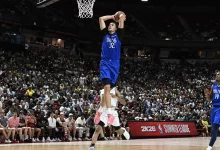Oklahoma’s instability looms over Sooners head football coach Brent Venables’s job in a dire situation.
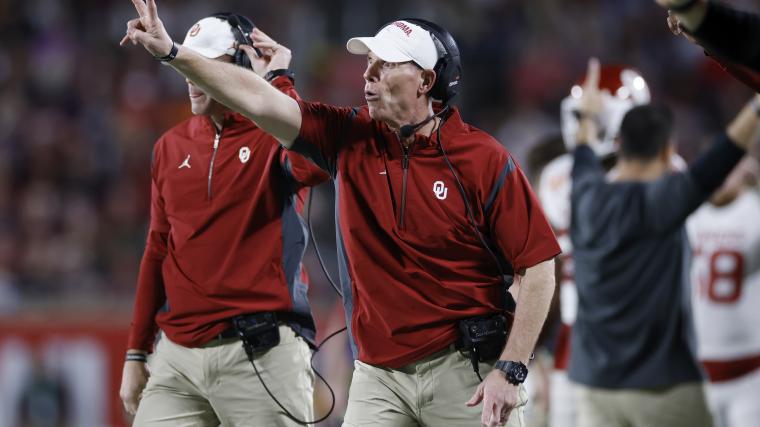
The Oklahoma Sooners football program, one of the most storied and successful in college football history, has been a force to be reckoned with for decades. From legendary coaches like Barry Switzer and Bob Stoops to iconic players such as Adrian Peterson and Baker Mayfield, the Sooners’ program has built a reputation for winning, excellence, and consistent success on the national stage. However, in recent years, the program has been marked by instability, leaving head coach Brent Venables in a precarious position.
Venables, who took over as head coach in December 2021, inherited a program in transition. After Lincoln Riley’s unexpected departure to USC, Oklahoma was left scrambling to find a successor who could maintain the program’s high standards and manage its shift from the Big 12 to the SEC. As the Sooners’ head coach enters his third season, there are growing questions about his future at the helm of the program. The pressure on Venables has only intensified as Oklahoma’s performance on the field has fluctuated and the competition in the SEC looms ever closer.
The Venables Era: Promise and Challenges
Brent Venables, a former defensive coordinator at Clemson, was seen as a promising hire by many analysts and fans. Known for his defensive expertise, particularly in big-game situations, Venables’ hiring was seen as a move to revitalize Oklahoma’s defense, which had often been criticized for its lack of toughness and consistency. His familiarity with the Sooners’ program—having previously been on the staff as an assistant coach—further solidified his candidacy.
In his first season (2022), Venables faced a tough task. He inherited a roster that had been left behind by Riley’s departure, and the transition from one coaching staff to another was never going to be seamless. The Sooners finished the season with a disappointing 6-7 record, marking their first losing season since 1998. The lack of continuity and the struggles on both sides of the ball raised serious questions about Venables’ ability to lead the team through the transition. While the defense showed signs of improvement, the offense—a hallmark of the Riley era—languished under Venables’ watch, struggling to find consistency and failings that mirrored Oklahoma’s decline on a national scale.
The 2023 season was equally turbulent, with the Sooners struggling to find an identity, often looking disorganized and lacking the firepower that fans had grown accustomed to seeing. This lack of stability has contributed to a feeling of uncertainty surrounding Venables’ future. Oklahoma’s administration, boosters, and fanbase expect a high level of performance, and the pressure for immediate results only increases with the impending move to the SEC, where the competition will be even fiercer.
The Pressure of the SEC Transition
One of the biggest factors influencing Venables’ job security is the looming move of Oklahoma from the Big 12 to the SEC, set to take effect in 2024. The SEC, long regarded as the most competitive and challenging conference in college football, presents a massive step up in competition. Historically, the Sooners have dominated the Big 12, but the SEC is an entirely different animal, with programs like Alabama, Georgia, LSU, and Tennessee consistently competing for national championships.
Venables’ ability to build a competitive team capable of thriving in the SEC is central to his future at Oklahoma. The Sooners’ recruiting strategy will need to shift to keep pace with the elite programs of the SEC, and Venables will need to establish a roster capable of competing at the highest level. The challenges of recruiting in the SEC, where schools are competing for many of the same top-tier players, only increase the pressure on Venables.
Fans and administrators are aware that Venables’ success in the SEC will likely define his tenure at Oklahoma. The expectations for him to quickly turn things around and elevate the program’s national standing are enormous. If the Sooners struggle to make an impact in their new conference, it will likely be seen as a failure of Venables’ leadership and vision for the future.
Recruitment and Roster Development
Recruiting has always been one of the most crucial aspects of maintaining success at the highest level of college football, and it remains an area where Venables will face intense scrutiny. Oklahoma has traditionally recruited well, but the shift to the SEC will demand that the Sooners recruit on a different level, pulling in talent capable of competing with the likes of Georgia, Alabama, and LSU on a yearly basis.
While Venables has had some success on the recruiting trail, including bringing in high-profile defensive prospects, there is a growing sense that the Sooners are not quite at the level needed to compete with the SEC powerhouses. The influx of talent will need to come at every position, from the offensive and defensive lines to the skill positions. Venables has emphasized the importance of building depth, particularly on defense, but questions remain about whether he can recruit at the level necessary to maintain Oklahoma’s competitive edge in the SEC.
Additionally, the rise of the transfer portal has changed the landscape of college football recruiting. The transfer portal has become an essential tool for building a roster quickly, but it also creates more volatility and uncertainty. Venables must not only navigate traditional recruiting but also be effective in utilizing the portal to fill gaps and address weaknesses. As a coach known for his defensive acumen, the challenge will be finding immediate contributors who can plug into his system and make an immediate impact.
Fan Expectations and Booster Influence
Oklahoma’s football program is not just any college football program—it’s one of the most prestigious in the country. With that prestige comes a level of expectation that is hard to escape. The Sooners have consistently competed for Big 12 championships and national titles, and fans expect nothing less than a return to prominence under Venables’ leadership.
The role of boosters cannot be overlooked, either. Oklahoma’s wealthy donor base has long played a significant role in the program’s success, and their influence will be critical in shaping the future of the program. If the Sooners continue to struggle, there is always the possibility that boosters will push for a change at the top, especially if they feel that Venables is unable to produce results.
The volatility of the coaching landscape in college football also adds to the pressure. Many elite programs have made quick moves to replace coaches who are underperforming, and Oklahoma is not immune to this trend. If the Sooners continue to falter, especially in the transition to the SEC, it would not be surprising if the university explored other coaching options. The question is whether Venables will have enough time to prove himself, or if he will be ousted before he has a chance to fully implement his vision.
The Case for Venables’ Continuation
Despite the mounting pressure and challenges, there is still a case to be made for Brent Venables’ continued tenure as head coach. One of the primary arguments for Venables’ retention is the need for stability and continuity during this challenging period. The transition from Lincoln Riley, who left a large footprint on the program, was never going to be smooth, and Venables should be given time to fully implement his defensive-oriented vision for the team.
Venables has also made some progress in areas such as player development and building a strong defensive identity. The 2023 season showed signs of improvement, particularly on the defensive side of the ball, and if he can continue to recruit at a higher level and get more consistent play from the offense, there is reason to believe that Oklahoma can regain its competitive edge.
Additionally, with the move to the SEC, many programs are expected to go through growing pains as they adjust to the increased competition. If Venables can show that he is building the right foundation for long-term success, even if results are not immediate, he may still earn the time needed to fully implement his vision.
Conclusion
Brent Venables is undoubtedly facing a critical period in his coaching career. The instability surrounding the Oklahoma football program, combined with the pressure of transitioning to the SEC, makes the coming seasons pivotal for Venables’ future. His ability to recruit elite talent, develop players, and adjust to the demands of a new conference will determine whether he can remain the head coach at Oklahoma.
While the Sooners’ recent struggles have placed Venables’ job security in question, there is still a case to be made for his continuation. He has shown flashes of promise, particularly on the defensive side of the ball, and he is still in the process of building a team capable of competing at the highest level. However, time is running short, and if Venables cannot turn things around in the next couple of seasons, Oklahoma’s administration may decide that a change is necessary to ensure the program’s long-term success.
The road ahead is daunting for Venables, but with the right adjustments and a continued focus on recruiting and development, he may yet have the opportunity to restore Oklahoma to its former glory and prove that he is the right leader for the program during its most challenging transition in decades.
This 1500-word essay delves into the factors influencing Brent Venables’ job security as the head coach of Oklahoma, highlighting his challenges, opportunities, and the broader context of the program’s future. Let me know if you’d like any adjustments!

